 | John Rowbotham - English language - 1838 - 404 pages
...; from multus, many. Mul'-ti-ple, s. — multiplex,- consisting of many folds, many times as much. One number is said to be a multiple of another, when it contains it a certain number of times without any remainder; thus, 12 is a multiple of 3 ; a common... | |
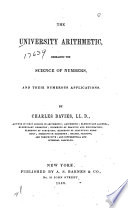 | Charles Davies - Arithmetic - 1846 - 378 pages
...manner of finding this divisor, it is necessary to explain some principles on which the method depends. One number is said to be a multiple of another when it contains that other an exact number of times. Thus, 24 is a multiple of 6, because 24 contains 6 an... | |
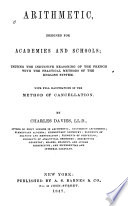 | Charles Davies - Arithmetic - 1847 - 368 pages
...manner of finding this divisor, it is necessary to explain some principles on which the method depends. One number is said to be a multiple of another when it contains that other an exact number of times. Thus, 24 is a multiple of 6, because 24 contains 6 an... | |
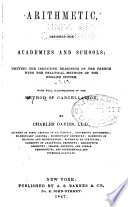 | Charles Davies - Arithmetic - 1847 - 368 pages
...manner of finding this divisor, it is necessary to explain some principles on which the method depends. One number is said to be a multiple of another when it contains that other an exact number of times. Thus, 24 is a multiple of 6, because 24 contains 6 an... | |
 | Daniel Adams - Arithmetic - 1848 - 320 pages
...common measure of 6 and 18; 1 of 28 and 42; 4 of 12, 20 and 32 ; 5 of 10, 15, 20, 25. 3. One number is a Multiple of another when it can be divided by it without a remainder. Thus 8 is a multiple of 2; 15 of 5; 33 of 11. 4. A number is a Common Multiple of two or more numbers when... | |
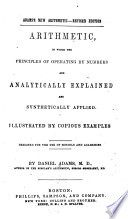 | Daniel Adams - Arithmetic - 1848 - 330 pages
...distinguished ? What is a prim*, number ? composite number ? even number ? odd number ? t 3. One number is a. Multiple of another when it can be divided by it without a remainder. Thus 8 is a multiple of 2; 15 of 5; 33 of 11. 4. A number is a Common Multiple of two or more numbers when... | |
 | Daniel Adams - Arithmetic - 1848 - 342 pages
...integers distinguished ? What is a number' composite number? even number? odd number? 3. One number is a Multiple of another when it can be divided by it without a remainder. Thus 8 is a multiple of 2; 15 of 5; 33 of 11. 4. A number is a Common Multiple of two or more numbers when... | |
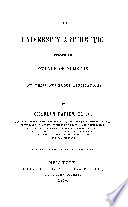 | Charles Davies - Arithmetic - 1850 - 412 pages
...manner of finding this divisor, it is necessary to explain some principles on which the method depends. One number is said to be a multiple of another when it contains that other an exact number of times. Thus, 24 is a multiple of 6, because 24 contains 6 an... | |
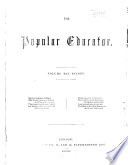 | 1856 - 418 pages
...common divisor of 24, 42, 54, and 60 ? 6. What is the greatest oommon divisor of 56, 84, 140, and 168 LEAST COMMON MULTIPLE. One number is said to be a multiple of another, when the former can be divided by the latter without a remainder. A common multiple of two or more numbers,... | |
 | Thomas Carpenter (schoolmaster.) - 1859 - 168 pages
...2431. Ans. 11. 1785, 3255, and 7140* Ans. 105. LEAST COMMON MULTIPLE. ONE number is said to contain, or to be a multiple of another, when it can be divided by it -without remainder ; thus, 12 is a multiple of 4. A common multiple of two or more numbers is one which contains... | |
| |